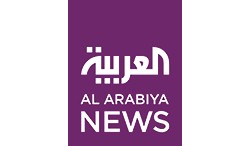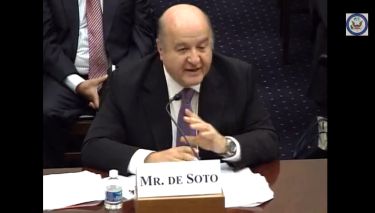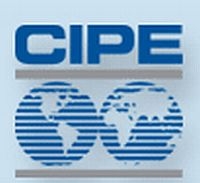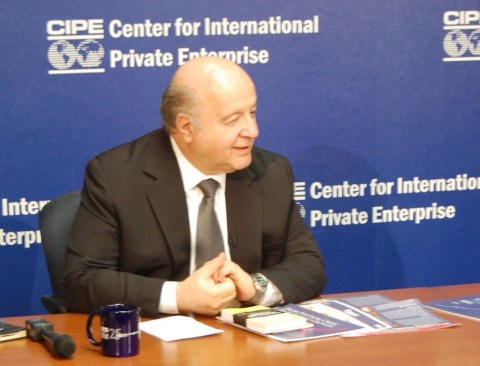 Three years after Mohammad Bouazizi sparked a wave of uprisings in North Africa and the Middle East with his self-immolation, young people in Tunisia and the rest of North Africa continue setting themselves ablaze, in anger and despair.
Three years after Mohammad Bouazizi sparked a wave of uprisings in North Africa and the Middle East with his self-immolation, young people in Tunisia and the rest of North Africa continue setting themselves ablaze, in anger and despair.
 Three years after Mohammad Bouazizi sparked a wave of uprisings in North Africa and the Middle East with his self-immolation, young people in Tunisia and the rest of North Africa continue setting themselves ablaze, in anger and despair.
Three years after Mohammad Bouazizi sparked a wave of uprisings in North Africa and the Middle East with his self-immolation, young people in Tunisia and the rest of North Africa continue setting themselves ablaze, in anger and despair.
 Who are the thought leaders shaping today's discourse on the future of society and the economy? Whose ideas are defining and changing our lives? Where is the impetus for innovation and social change coming from? Working together with Peter Gloor, GDI now presents the second "Global Thought Leader Map", and the resulting "influence rank", which may prove to be an effective tool for measuring the influence of the world's most important thinkers.
Who are the thought leaders shaping today's discourse on the future of society and the economy? Whose ideas are defining and changing our lives? Where is the impetus for innovation and social change coming from? Working together with Peter Gloor, GDI now presents the second "Global Thought Leader Map", and the resulting "influence rank", which may prove to be an effective tool for measuring the influence of the world's most important thinkers.
By Silvio Canto, Jr.
Pope Francis is off to a great start. After all, how often does a man became person of the year in his first year on the job?
I like the choice for several reasons:
1) It's nice to see a religious leader, a man who represents millions around the world;
2) He has not started any wars or promised public programs that he can't deliver; and,
3) I like his frank approach to issues. I may disagree with him here and there but I like the fact that he forces us to talk about these issues.
 Hernando de Soto, President of Peruvian Institute for Liberty and Democracy, participated in the The Clinton Global Initiative (CGI) Latin America, the first CGI meeting held in Latin America, at Copacabana Palace Hotel in Rio de Janeiro, Brazil, on December 9, 2013.
Hernando de Soto, President of Peruvian Institute for Liberty and Democracy, participated in the The Clinton Global Initiative (CGI) Latin America, the first CGI meeting held in Latin America, at Copacabana Palace Hotel in Rio de Janeiro, Brazil, on December 9, 2013.
In his opening presentation, President Clinton asks Hernando de Soto a series of question (starting at minute 40:22 of the the live stream video), when he recalls his first conversations with Hernando about Egypt and how it takes forever to open up a simple business legally.
Click on the image below to watch the video.
 19 Oct 2013 - The Nobel prize for economics remains separate from the main prizes, and so it should, as the namesake was a scientist and economics is categorically not.
19 Oct 2013 - The Nobel prize for economics remains separate from the main prizes, and so it should, as the namesake was a scientist and economics is categorically not.
The Nobel prize in economics isn’t really a Nobel prize. There are five of those – in physics, chemistry, medicine, literature and peace. These “true Nobels” have been awarded since 1895, the year before the death of Alfred Nobel – the Swedish industrialist who made his fortune, famously, by inventing and selling dynamite.
04 Jul 2013 - To watch events in Egypt is like seeing a videotape of the Arab Spring being played backwards. The ballot box has been kicked away, the constitution torn up, the military has announced the name of a puppet president – and crowds assemble in Tahrir Square to go wild with joy. The Saudi Arabian monarchy, which was so nervous two years ago, has telegrammed its congratulations to Cairo’s generals. To the delight of autocrats everywhere, Egypt’s brief experiment with democracy seems to have ended in embarrassing failure.
![]() 24 June 2013 - TANZANIANS have been urged to properly use opportunities offered by the Property and Business Formalization Programme popularly known by its Kiswahili acronym as MKURABITA.
24 June 2013 - TANZANIANS have been urged to properly use opportunities offered by the Property and Business Formalization Programme popularly known by its Kiswahili acronym as MKURABITA.
Speaking during the handing over ceremony of customary title deeds to tea farmers of Mufindi, Njombe and Rungwe, the Mbeya Regional Commissioner, Mr Abbas Kandoro, said that Tanzanians should use MKURABITA to winch out of poverty.
 House Committee on Foreign Affairs
House Committee on Foreign Affairs21 May 2013 -- U.S. Rep. Ed Royce (R-CA), Chairman of the House Foreign Affairs Committee, convened a hearing to examine the economic causes of the unrest in the Middle East and North Africa. The hearing took place today at 9:30 a.m. The witnesses were former Secretary of State Madeleine K. Albright, and Mr. Hernando de Soto, President of the Institute for Liberty and Democracy.
 The infrastructure that supports our system is slowly being chipped away.
The infrastructure that supports our system is slowly being chipped away.By: Roger Martin Special to the Star, Published on Fri May 17 2013
Why does democratic capitalism seem to thrive in one part of the world and fail so dramatically in others?
In his 2013 book The Mystery of Capital, Peruvian economist Hernando De Soto makes an argument that has radically changed my view of the challenges facing democratic capitalism in North America.
 Hernando de Soto
Hernando de Soto
March 15, 2013 - This Feature Service article is based on an interview at the CIPE offices in Washington, DC on February 11, 2013.
Entrepreneurship is all about combining things from different resources to create wealth, and institutions are crucial to facilitating that combination. What do I mean by “combining things”? Consider Leonard E. Read’s famous example that to build a simple pencil involves numerous countries, countless individuals, and hundreds of different ingredients: from graphite to the Oregon wood which sandwiches it in, to the copper of Chile and the zinc of Peru and the black nickel of South Africa, which hold the eraser close to the pencil itself, to the lacquer that is on the pencil. The wood requires kilning and dyeing. It must be cut and shaped and glued. Or take a look at your watch, which is likely to involve more than 500 parts, also provided by suppliers from all over the world.
 INTERVIEW WITH HERNANDO DE SOTO
INTERVIEW WITH HERNANDO DE SOTO
TÊTE À TÊTE | March 5, 2013 -- GB discusses wealth creation, the state of the Americas, and lessons for the states of the post-Arab Spring with Peru’s Hernando de Soto
GB: Why does Peru today have the second fastest-growing economy in the Americas (after Panama)?
HDS: What is good about Peru today is that a macroeconomic model that was designed in the early 1990s has endured and been protected, quite systematically, across different governments – all of different political stripes. The result has been, ultimately, Chinese-type growth rates. Of course, Peru does not profit from the type of canal that has made Panama so vital; otherwise, we would have the top growth rate in Latin America.
![]() The protests that toppled governments were fueled by anger over the lack of a basic element in market economies.
The protests that toppled governments were fueled by anger over the lack of a basic element in market economies.
By HERNANDO DE SOTO
February 26, 2013 - Al Qaeda is resurgent in Mali, Algeria and beyond. Violent turmoil and anti-Western hostility are rising in the Middle East and North Africa. Two years after the Arab Spring, it would be easy to become discouraged about what the mass awakening has wrought.
That would be a mistake. Unfortunately for al Qaeda and its allies, much more promising forces are at work, sending positive signals for the West, if only the West will listen.
![]() 15 February 2013: The Lagos State Government has rolled out fresh statistics of its domestic economy, noting that about 90 per cent of businesses operating in the state “are locked outside the formal sectors”.
15 February 2013: The Lagos State Government has rolled out fresh statistics of its domestic economy, noting that about 90 per cent of businesses operating in the state “are locked outside the formal sectors”.
Consequently, the state government unveiled comprehensive institutional reforms, designed to formalise the state’s informal sector and integrate about one million actors operating in the sector.
Commissioner for Commerce and Industry, Mrs. Olusola Oworu, disclosed the plan at a training organised in collaboration with Institute of Liberty and Democracy (ILD) for the contract workers, who will carry out a study on the challenges of informal sector with a view to tackling them.
 One of the first people to walk through the doors after CIPE’s founding in 1983 was Hernando de Soto, President of the Institute for Liberty and Democracy (ILD) in Lima, Peru. Mr. de Soto had the fundamental insight that poor people were not part of the development problem but instead part of the solution. In his best-selling books, The Other Path and The Mystery of Capital, he explained how the lack of access to property rights and other institutions of a market economy keeps the poor in most developing countries trapped in the informal sector.
One of the first people to walk through the doors after CIPE’s founding in 1983 was Hernando de Soto, President of the Institute for Liberty and Democracy (ILD) in Lima, Peru. Mr. de Soto had the fundamental insight that poor people were not part of the development problem but instead part of the solution. In his best-selling books, The Other Path and The Mystery of Capital, he explained how the lack of access to property rights and other institutions of a market economy keeps the poor in most developing countries trapped in the informal sector.